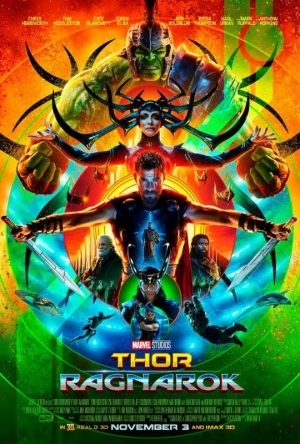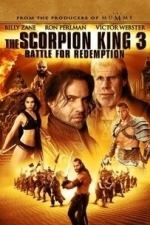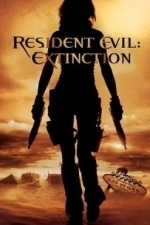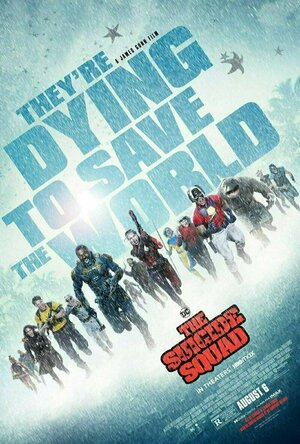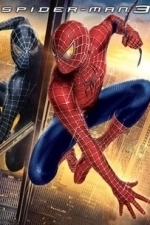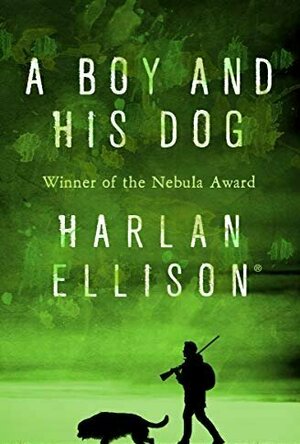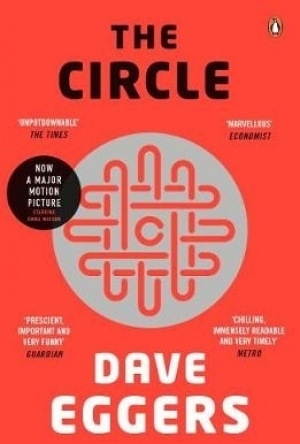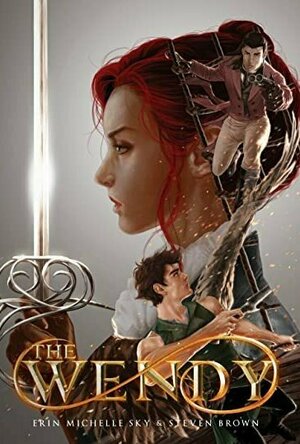Search
Search results
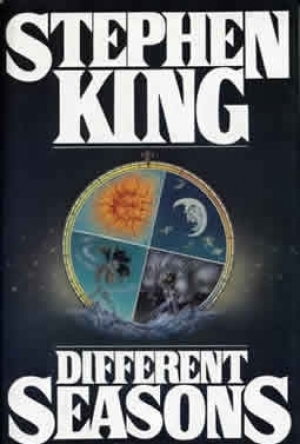
Different Seasons
Book
A "hypnotic" (The New York Times Book Review) collection of four novellas from Stephen King bound...
Shawshank Redemption The Body Stand By Me Apt Pupil The Breathing Method
Ryan Hill (152 KP) rated Thor: Ragnarok (2017) in Movies
May 11, 2019
The humour
Chris Hemsworth as Thor
Tom Hiddleston as Loki
Mark Ruffalo as Bruce Banner/The Hulk
Taika Waititi as Korg
Cate Blanchett as Hela
Jeff Goldblum's Grandmaster is a God send (1 more)
Tessa Thompson as Valkiyrie
The Action was awesome specifically Hulk vs Thor and the final bridge battle
The synth score
"Piss off Ghost"
Perhaps, the most entertaining and enjoyable movie in the MCU since Iron Man?
There’s so many reasons why I enjoy Thor: Ragnarok, but it has to start with the direction and vision of Taika Waititi. He’s a genre changer in the comic book man movie universe. From his Kiwi sense of humor, to the choice in mood music, to the simply fun action sequences; Thor: Ragnarok is a two hour smile that would make it appear I had Botox injections, since my facial expression stayed happy.
Thor is one of my favorite characters in the MCU and I like the way the fat has been chewed off in his movies. Less memorable characters are disposed of, and screen time is given to the characters you want to see. Jeff Goldblum’s Grandmaster is a gift from God. Loki is Loki and who doesn’t love Loki? Tessa Thompson’s Valkyrie has a lot of depth. Cate Blanchett’s Hela might be in the top 5 in baddest of bad MCU villains, and puts the D in dysfunctional families. Plus, Idris Elba’s Heimdall deserved his own movie, and perhaps the number one scene stealer, and one of the reasons why this movie is truly special is Taika Waititi’s Korg. Who knew a CGI rock could be so hilarious? His voice is infectious, and I want to see more of Korg.
Hulk and Banner are both used just right. The synth-pop score makes me want to dance a boogie groove. Thor’s flaw is there’s too many interesting storylines, which causes the film to jump some from character to character. Watching Chris Hemsworth ham it up as Thor is what these types of movies should be all about. Putting the F back in fun and having a helluva time in the process doing so.
There’s so many reasons why I enjoy Thor: Ragnarok, but it has to start with the direction and vision of Taika Waititi. He’s a genre changer in the comic book man movie universe. From his Kiwi sense of humor, to the choice in mood music, to the simply fun action sequences; Thor: Ragnarok is a two hour smile that would make it appear I had Botox injections, since my facial expression stayed happy.
Thor is one of my favorite characters in the MCU and I like the way the fat has been chewed off in his movies. Less memorable characters are disposed of, and screen time is given to the characters you want to see. Jeff Goldblum’s Grandmaster is a gift from God. Loki is Loki and who doesn’t love Loki? Tessa Thompson’s Valkyrie has a lot of depth. Cate Blanchett’s Hela might be in the top 5 in baddest of bad MCU villains, and puts the D in dysfunctional families. Plus, Idris Elba’s Heimdall deserved his own movie, and perhaps the number one scene stealer, and one of the reasons why this movie is truly special is Taika Waititi’s Korg. Who knew a CGI rock could be so hilarious? His voice is infectious, and I want to see more of Korg.
Hulk and Banner are both used just right. The synth-pop score makes me want to dance a boogie groove. Thor’s flaw is there’s too many interesting storylines, which causes the film to jump some from character to character. Watching Chris Hemsworth ham it up as Thor is what these types of movies should be all about. Putting the F back in fun and having a helluva time in the process doing so.
Jordan Binkerd (567 KP) rated The Scorpion King 3: Battle For Redemption (2012) in Movies
Oct 27, 2019
Victor Webster sells the fights (5 more)
Ron Perlman is never a bad thing.
Neither is Temura Morrison.
Billy Zane is comically evil
Krystal Vee and Selina Lo pull off their reason for being here - hot chicks kicking ass.
Nice scenery and sets
Victor Webster fails to sell being The Rock, even aside from skin ton (2 more)
The story and lore are all over the place, not helped by the setting
The Warriors of the book announcing themselves just felt silly and contrived
Muddies the franchise and lore
The longer this goes the more damage this franchise does to itself. Let's review what we've seen so far:
-The Mummy Returns: At the end of his life, the Scorpion King leads an army to take over and subjugate the world, aided by Anubis, which proves that the Egyptian gods are, you know, gods.
-The Scorpion King: Mathayus is ostensibly the last living Akkadian, and leads a revolt against an evil king who....wants to take over and subjugate the world. Some tragic irony there, knowing where he ends up.
-The Scorpion King II: Rise of a Warrior: There's a whole kingdom of Akkadians, and Mathayus leads a revolt against the general who killed both his father and the rightful King, usurping the throne. Given that just a decade or two later the entire race has been wiped out, maybe putting the rightful heir back on the throne didn't end well?
Which brings us to this movie, featuring numerous human characters with the names of the Egyptian pantheon (maybe named in homage to their gods, but it feels like the idea is that these men will be mistaken for God's by myth and legend) and doubles down on the "conquest is evil" theme. Mathayus has lost his queen and kingdom from the first film to plague, reduced to being a mercenary again. The action primarily happens in Egypt and.... Cambodia? Vietnam? Thailand? Somewhere around there, with little explanation of how the characters go that distance. This just makes the whole thing more inconsistent and convoluted. I shudder to think about the damage the next one will do....
-The Mummy Returns: At the end of his life, the Scorpion King leads an army to take over and subjugate the world, aided by Anubis, which proves that the Egyptian gods are, you know, gods.
-The Scorpion King: Mathayus is ostensibly the last living Akkadian, and leads a revolt against an evil king who....wants to take over and subjugate the world. Some tragic irony there, knowing where he ends up.
-The Scorpion King II: Rise of a Warrior: There's a whole kingdom of Akkadians, and Mathayus leads a revolt against the general who killed both his father and the rightful King, usurping the throne. Given that just a decade or two later the entire race has been wiped out, maybe putting the rightful heir back on the throne didn't end well?
Which brings us to this movie, featuring numerous human characters with the names of the Egyptian pantheon (maybe named in homage to their gods, but it feels like the idea is that these men will be mistaken for God's by myth and legend) and doubles down on the "conquest is evil" theme. Mathayus has lost his queen and kingdom from the first film to plague, reduced to being a mercenary again. The action primarily happens in Egypt and.... Cambodia? Vietnam? Thailand? Somewhere around there, with little explanation of how the characters go that distance. This just makes the whole thing more inconsistent and convoluted. I shudder to think about the damage the next one will do....
Phil Leader (619 KP) rated Heart of Darkness in Books
Nov 14, 2019
This book is undoubtedly most famous today for being the story behind the film Apocalypse Now and really comparisons between the two are inevitable.
The story itself is a story within a story, being related by a sailor on a ship while it is waiting at anchor in the Thames estuary. To pass the time he tells his crewmates of the time he spent several years previously working for a trading consortium in Africa, piloting a boat to the trading station up river to pick up ivory.
His manager is wary of the man who runs the trading station - Mr Kurtz. He believes he is ultimately after his job. It is clear that Kurtz is a very talismanic and polarising figure, some hating him and others talking about him as if he is some sort of deity. The narrator cannot wait to meet him but suffers many delays (including having to repair his boat) before he can set off up river. By the time he does the weight of expectation and anticipation has created his own expectations of what he will find. But what will the reality be?
This is s slim volume, and to be honest a slim plot. But the brilliance is in the telling of the story. Conrad carefully evokes the feeling of the oppressive heat and frustration of not being able to head up the river. But once underway the jungle closes in and is claustrophobic and full of mystery and hidden dangers. The attraction is not in the tale itself but in the way it is told.
By the time the trading post is reached the expectations of Kurtz have been raised in the reader as much as in the narrator and events unfold in an unexpected direction.
As with Apocalypse Now the journey up the river is everything and the eventual destination looms until it consumes the characters and dictates their actions.
A word of caution about the language used. The 'N' word is frequently used and sometimes in a derogatory manner so if this offends it is best to avoid.
Overall, a diverting read and a masterclass in using descriptions to set the tone for the reader. But probably not essential.
The story itself is a story within a story, being related by a sailor on a ship while it is waiting at anchor in the Thames estuary. To pass the time he tells his crewmates of the time he spent several years previously working for a trading consortium in Africa, piloting a boat to the trading station up river to pick up ivory.
His manager is wary of the man who runs the trading station - Mr Kurtz. He believes he is ultimately after his job. It is clear that Kurtz is a very talismanic and polarising figure, some hating him and others talking about him as if he is some sort of deity. The narrator cannot wait to meet him but suffers many delays (including having to repair his boat) before he can set off up river. By the time he does the weight of expectation and anticipation has created his own expectations of what he will find. But what will the reality be?
This is s slim volume, and to be honest a slim plot. But the brilliance is in the telling of the story. Conrad carefully evokes the feeling of the oppressive heat and frustration of not being able to head up the river. But once underway the jungle closes in and is claustrophobic and full of mystery and hidden dangers. The attraction is not in the tale itself but in the way it is told.
By the time the trading post is reached the expectations of Kurtz have been raised in the reader as much as in the narrator and events unfold in an unexpected direction.
As with Apocalypse Now the journey up the river is everything and the eventual destination looms until it consumes the characters and dictates their actions.
A word of caution about the language used. The 'N' word is frequently used and sometimes in a derogatory manner so if this offends it is best to avoid.
Overall, a diverting read and a masterclass in using descriptions to set the tone for the reader. But probably not essential.
LeftSideCut (3776 KP) rated Resident Evil: Extinction (2007) in Movies
Nov 25, 2020
"Slowly but surely, the Earth began to wither and die." - Alice
This quote sums up how I feel about the Resident Evil series and it's effect on the world of movies...
Resident Evil: Extinction is the third in the franchise, and honestly, it's a big improvement on the first two. The effects are a lot better for a start, and it feels more like a horror. It at least attempts (and unfortunately fails) to make you care about other characters other than Milla Jovovich's Alice, and it does have some good shots here and there, courtesy of Highlander director Russell Mulcahy.
However it has a butt load of issues (surprise surprise).
Although it leans more towards horror than before, Extinction ticks off every zombie cliché in the book, but has the arrogance to act like it's showing the audience something new. This culminates in a laughable number of unearned and predictable jump scares, and any action scenes are once again riddled with unnecessary edits and cuts.
The characters are another issue. This series continues to drip feed characters from the games, but they're nothing more than glorified cameos. Claire Redfield (Ali Larter) is adapted this time around, and although it's nice to see her character, she doesn't really do much beyond leading a group of survivors around, a group of characters who feel like they're straight out of one of the boring episode of The Walking Dead.
Then there's poor Iain Glen. Before Game of Thrones came along, he was destined to always be that evil dude who got to be in video game movies. *Spoiler Alert* - he turns into the Tyrant from the game series near the end, but he still sounds like Iain Glen when he talks (which is really fucking weird), and is then dispatched without much hassle, meaning that once again, this film series fucks up another classic Resident Evil monster. We also get a tease of Albert Wesker but it's all thoroughly underwhelming.
Apart from all that, I still struggle to connect to Alice as a protagonist, no matter how undeniably badass she may be.
Extinction is way more watchable than most of these movies but still, they should be better, and they're not. Ugh.
This quote sums up how I feel about the Resident Evil series and it's effect on the world of movies...
Resident Evil: Extinction is the third in the franchise, and honestly, it's a big improvement on the first two. The effects are a lot better for a start, and it feels more like a horror. It at least attempts (and unfortunately fails) to make you care about other characters other than Milla Jovovich's Alice, and it does have some good shots here and there, courtesy of Highlander director Russell Mulcahy.
However it has a butt load of issues (surprise surprise).
Although it leans more towards horror than before, Extinction ticks off every zombie cliché in the book, but has the arrogance to act like it's showing the audience something new. This culminates in a laughable number of unearned and predictable jump scares, and any action scenes are once again riddled with unnecessary edits and cuts.
The characters are another issue. This series continues to drip feed characters from the games, but they're nothing more than glorified cameos. Claire Redfield (Ali Larter) is adapted this time around, and although it's nice to see her character, she doesn't really do much beyond leading a group of survivors around, a group of characters who feel like they're straight out of one of the boring episode of The Walking Dead.
Then there's poor Iain Glen. Before Game of Thrones came along, he was destined to always be that evil dude who got to be in video game movies. *Spoiler Alert* - he turns into the Tyrant from the game series near the end, but he still sounds like Iain Glen when he talks (which is really fucking weird), and is then dispatched without much hassle, meaning that once again, this film series fucks up another classic Resident Evil monster. We also get a tease of Albert Wesker but it's all thoroughly underwhelming.
Apart from all that, I still struggle to connect to Alice as a protagonist, no matter how undeniably badass she may be.
Extinction is way more watchable than most of these movies but still, they should be better, and they're not. Ugh.
LeftSideCut (3776 KP) rated The Suicide Squad (2021) in Movies
Jul 31, 2021
Firstly, let it be known that The Suicide Squad is a far, far, superior movie to 2016's Suicide Squad (although, that's not exactly a tall order...)
It's fun, frantic, sweary, gory, and is, above all, unmistakably a James Gunn film.
The remants of the 2016 version that remain are improved, namely Rick Flag and Harley Quinn. Both characters are well fleshed out and likable. Stand them side by side with all the newcomers and you have a wonderfully weird line up of D-list DC villains. Amongst the massive ensemble, the meatier roles are given to Bloodsport (Idris Elba), Peacemaker (John Cena), Ratcatcher 2 (Daniela Melchior), Polka-Dot Man (David Dastmalchian), Thinker (Peter Capaldi) and of course, the show stealer King Shark (Sylvester Stallone). I would happily kill for him, and Sebastian the rat....
All of these characters are simply a pleasure to watch. Their interactions with eachother are frequently hilarious and the combined team give this movie a huge fricking heart that was so lacking back in 2016.
My main criticism is the pacing. After an amusingly brutal opening gambit, the whole thing takes a bit of a dive. The humour isn't quite enough to hold the slow-paced first hour together, and I found myself drifting on more than one occasion. I also wasn't a fan of the arty title cards that crop up throughout (with the exception of one during the films final act, which is quite possibly one of my favourite moments in the history of comic book movies...)
Sure, this whole part drags the experience down as a whole, but the last hour is an absolute riot. A fantastic scene involving Harley Quinn, a long hallway, and a javelin, marks a triumphant turn in proceedings, and the build up and resulting climax is batshit insane, with a villain I genuinely thought I'd never get to see in the big screen. It's horrifically entertaining and doesn't let up until the credits roll.
Ultimately, The Suicide Squad is heaps of gory fun, and a welcome addition to the mixed bag that is the DCEU. Personally, I would love to see Gunn return to the franchise in some form. Hell, give him the keys to the whole kingdom and see what happens.
It's fun, frantic, sweary, gory, and is, above all, unmistakably a James Gunn film.
The remants of the 2016 version that remain are improved, namely Rick Flag and Harley Quinn. Both characters are well fleshed out and likable. Stand them side by side with all the newcomers and you have a wonderfully weird line up of D-list DC villains. Amongst the massive ensemble, the meatier roles are given to Bloodsport (Idris Elba), Peacemaker (John Cena), Ratcatcher 2 (Daniela Melchior), Polka-Dot Man (David Dastmalchian), Thinker (Peter Capaldi) and of course, the show stealer King Shark (Sylvester Stallone). I would happily kill for him, and Sebastian the rat....
All of these characters are simply a pleasure to watch. Their interactions with eachother are frequently hilarious and the combined team give this movie a huge fricking heart that was so lacking back in 2016.
My main criticism is the pacing. After an amusingly brutal opening gambit, the whole thing takes a bit of a dive. The humour isn't quite enough to hold the slow-paced first hour together, and I found myself drifting on more than one occasion. I also wasn't a fan of the arty title cards that crop up throughout (with the exception of one during the films final act, which is quite possibly one of my favourite moments in the history of comic book movies...)
Sure, this whole part drags the experience down as a whole, but the last hour is an absolute riot. A fantastic scene involving Harley Quinn, a long hallway, and a javelin, marks a triumphant turn in proceedings, and the build up and resulting climax is batshit insane, with a villain I genuinely thought I'd never get to see in the big screen. It's horrifically entertaining and doesn't let up until the credits roll.
Ultimately, The Suicide Squad is heaps of gory fun, and a welcome addition to the mixed bag that is the DCEU. Personally, I would love to see Gunn return to the franchise in some form. Hell, give him the keys to the whole kingdom and see what happens.
LeftSideCut (3776 KP) rated Spider-Man 3 (2007) in Movies
Sep 24, 2020 (Updated Sep 24, 2020)
The third and final entry in the Sam Raimi trilogy of Spider-Man films is arguably the most well known, unfortunately for all the wrong reasons, and it's a real shame as there are flashes of greatness, but the finished product is a hot mess.
One of the main issues is of course the three big villains all battling for screentime. Sandman (Thomas Haden Church) is a great villain to add to the series, but his story is executed poorly, and includes a dumb retcon in a half arsed attempt to link him to the original film. It's just unnecessary and soils something that could have been good. And then there's Venom - A huge fan favourite villain who Sam Raimi apparently doesn't like, and it's evident. Eddie Brock (Topher Grace) is rushed into the narrative, and his reasons for hating Peter Parker feel forced as a result. Venoms inclusion feels a bit tacked on, and unfortunately reaks of studio meddling.
Other than that, there's also the issue of over confidence - the assumption that an audience wants to watch an edgy version of Tobey Maguire's Peter Parker swanning and dancing down a street is bold to say the least - I could even forgive the infamous scene if it wasn't immediately followed up with a second dance number in a jazz bar. I get that it's designed to portray the symbiote suits hold over Peter and his deteriorating character attributes, buts it's a massive shitty swing and a miss (much like the whole movie in general) that makes me want to scream.
It's not all bad though. All of the cast, new and familiar, are good. I think Bryce Dallas Howard is a great Gwen Stacy. It has some decent set pieces as well - the scene where Sandman is discovering his new powers is brilliant, as is the fight between him and black suit Spider-Man in the underground. I also quite enjoy the final showdown when we (finally) get to see Venom properly.
It's not enough though, and Spider-Man 3 ultimately is a flawed if ambitious comic book sequel.
One of the main issues is of course the three big villains all battling for screentime. Sandman (Thomas Haden Church) is a great villain to add to the series, but his story is executed poorly, and includes a dumb retcon in a half arsed attempt to link him to the original film. It's just unnecessary and soils something that could have been good. And then there's Venom - A huge fan favourite villain who Sam Raimi apparently doesn't like, and it's evident. Eddie Brock (Topher Grace) is rushed into the narrative, and his reasons for hating Peter Parker feel forced as a result. Venoms inclusion feels a bit tacked on, and unfortunately reaks of studio meddling.
Other than that, there's also the issue of over confidence - the assumption that an audience wants to watch an edgy version of Tobey Maguire's Peter Parker swanning and dancing down a street is bold to say the least - I could even forgive the infamous scene if it wasn't immediately followed up with a second dance number in a jazz bar. I get that it's designed to portray the symbiote suits hold over Peter and his deteriorating character attributes, buts it's a massive shitty swing and a miss (much like the whole movie in general) that makes me want to scream.
It's not all bad though. All of the cast, new and familiar, are good. I think Bryce Dallas Howard is a great Gwen Stacy. It has some decent set pieces as well - the scene where Sandman is discovering his new powers is brilliant, as is the fight between him and black suit Spider-Man in the underground. I also quite enjoy the final showdown when we (finally) get to see Venom properly.
It's not enough though, and Spider-Man 3 ultimately is a flawed if ambitious comic book sequel.
Joe Goodhart (27 KP) rated A Boy and His Dog in Books
Nov 30, 2020
I was very saddened to hear the news of Harlan Ellison's passing. While I didn't agree with him on some things, I did agree with him on a great number of them. Cantankerous, but not snarky or mean-spirited, in his writings and conversations. I found him to one of the best writers on the planet. Now, he's joined the likes of Shakespeare, Emerson, Vonnegut, all at God's assembled roundtable of literary greats! :)
Okay, that's enough of my tribute-of-sorts to Harlan Ellison. Now, for my review of A BOY AND HIS DOG.
This was a a quick, fun read. Quite literally, it is the adventure of boy (Vic) and his telepathic dog (Blood). The two rely on each other, sharing bond that comes through in all of their exchanges. A four-legged friend who became so much more than just a "canine companion".
The tale was written in 1969 and was later adapted for film by L.Q. Jones. Despite the time written, the book still reads as if written yesterday. And that was something unique about Ellison: his writing felt timeless, as if it was not tied to any particular time during which it was written.
Yes, the language can be deemed coarse at points, but still far less offensive than anything written today. The use of profanity is given to the way Vic speaks, a product of the post-apocalyptic world he was born. It never feels forced or anything approaching offensive. It just feels, for want of a better word, natural.
Again, this is a fun short story about a boy and his dog. It may not appeal to everyone, but I surely liked it and I hope that maybe you will, too.
Also, stick around after the story, as "AHBHU: The Passing of One Man's Inspiration and Best Friend". It is Harlan Ellison's tribute/memorial to his rescued dog, a Puli (essentially, a Hungarian sheep dog), and how much he meant to him, so much so that he was whom Ellison based Blood's character on. I challenge you to NOT tear up by the conclusion!
By all means, good people, please check this one out!
Okay, that's enough of my tribute-of-sorts to Harlan Ellison. Now, for my review of A BOY AND HIS DOG.
This was a a quick, fun read. Quite literally, it is the adventure of boy (Vic) and his telepathic dog (Blood). The two rely on each other, sharing bond that comes through in all of their exchanges. A four-legged friend who became so much more than just a "canine companion".
The tale was written in 1969 and was later adapted for film by L.Q. Jones. Despite the time written, the book still reads as if written yesterday. And that was something unique about Ellison: his writing felt timeless, as if it was not tied to any particular time during which it was written.
Yes, the language can be deemed coarse at points, but still far less offensive than anything written today. The use of profanity is given to the way Vic speaks, a product of the post-apocalyptic world he was born. It never feels forced or anything approaching offensive. It just feels, for want of a better word, natural.
Again, this is a fun short story about a boy and his dog. It may not appeal to everyone, but I surely liked it and I hope that maybe you will, too.
Also, stick around after the story, as "AHBHU: The Passing of One Man's Inspiration and Best Friend". It is Harlan Ellison's tribute/memorial to his rescued dog, a Puli (essentially, a Hungarian sheep dog), and how much he meant to him, so much so that he was whom Ellison based Blood's character on. I challenge you to NOT tear up by the conclusion!
By all means, good people, please check this one out!
Chloë McTaggart (48 KP) rated The Circle in Books
Oct 19, 2018
Contains spoilers, click to show
The Circle is Eggers 10th fictional work and through dystopian world building, goes to highlight some of the key modern day issues - specifically those surrounding technology and social media. Unlike other dystopian novels Eggers sets about showing the ‘positive’ side of what could be, ficionally speaking, as opposed to novels such as The Handmaids Tale and Divergence and such books that set themselves in a destroyed-dystopia.
Despite being set in a dystopian world full of technology we currently only see on the Syfy channel, it somehow clings to our ideas of reality and what is possible. By doing this, it soon offers a dangerous look at what technology may become as it highlights the impact it already has on our lives. The protagonist, Mae, lands a job at a technology company named “The Circle” which is comparable to brands and companies such as Apple, Google and Samsung. Eggers takes the ideas of the main technological companies of the twenty first century and rolls them into one; producing an unstoppable powerhouse of sharing, transparency and sociability overseen by a trinity of male bosses that we never really connect to. While Eggers sets the scene, and development of society, through his use of The Circle as an interdimensional power house, he fails to develop a relatable character in his protagonist.
From the start of the book the protagonist, Mae, comes across as weak and unmotivated with some parts of the novel serving almost as a pity party for her. If she’s not complaining, she’s raving about ex-boyfriends or how hard a life she has as though she’s the only one in the world that matters - though I suppose to Eggers she is the most important. Through this self pity, the reader struggles to find a point of contact with Mae; she offers no escape from the real world and instead becomes a motivation to stop reading the novel.
However, despite the lack of character development, the novel does raise relevant questions concerning technology and social media. In the film adaptation, it serves to show us just how much of an impact we can have on others without realising it; and how even when we do realise it the popularity or reward is too enticing to stop.
Despite being set in a dystopian world full of technology we currently only see on the Syfy channel, it somehow clings to our ideas of reality and what is possible. By doing this, it soon offers a dangerous look at what technology may become as it highlights the impact it already has on our lives. The protagonist, Mae, lands a job at a technology company named “The Circle” which is comparable to brands and companies such as Apple, Google and Samsung. Eggers takes the ideas of the main technological companies of the twenty first century and rolls them into one; producing an unstoppable powerhouse of sharing, transparency and sociability overseen by a trinity of male bosses that we never really connect to. While Eggers sets the scene, and development of society, through his use of The Circle as an interdimensional power house, he fails to develop a relatable character in his protagonist.
From the start of the book the protagonist, Mae, comes across as weak and unmotivated with some parts of the novel serving almost as a pity party for her. If she’s not complaining, she’s raving about ex-boyfriends or how hard a life she has as though she’s the only one in the world that matters - though I suppose to Eggers she is the most important. Through this self pity, the reader struggles to find a point of contact with Mae; she offers no escape from the real world and instead becomes a motivation to stop reading the novel.
However, despite the lack of character development, the novel does raise relevant questions concerning technology and social media. In the film adaptation, it serves to show us just how much of an impact we can have on others without realising it; and how even when we do realise it the popularity or reward is too enticing to stop.
Lottie disney bookworm (1056 KP) rated The Wendy (Tales of The Wendy #1) in Books
Dec 29, 2020
Contains spoilers, click to show
If I am being completely honest, Peter Pan has never been my favourite Disney film. Oh sure the lost boys and Michael were cute; Tink was sassy and Hook was a good villain but why did everyone moon over Peter so much? And Wendy was always a bit, well a bit wet!
Enter Erin Michelle Sky and Steven Brown with their Tales of Wendy series to prove me wrong! The Wendy is the first in this series but I am already desperate to finish the second book, The Navigator before their third is released at the end of this year.
The Wendy, as you may expect, centres around Wendy Darling. However, this is not the prissy, mother-idolising figure I love to roll my eyes at: oh no, this Wendy Darling is growing up in the late 1700s in a London orphanage. In a world where her sole career option seems to be to become a mother, this feisty ten-year-old would prefer to “marry Davy Jones than grow up and look after babies”. This Wendy Darling is the one I have been waiting for.
Wendy’s dream is to join the Navy and sail the world. Unlike the rest of 18th Century Britain, she doesn’t see why being a girl should prevent this.
Therefore, over the years she becomes adapt at mathematics, science, navigation, marksmanship and swordsmanship. Nevertheless, despite being just as good, if not better than her childhood friend Charlie, he earns the rank of Officer in the British Navy whilst Wendy is assigned to the Home Office as a Diviner, one who can detect the presence of magic: a post to be filled only by women and dogs.
It is here that the reader meets John and Michael: Wendy’s “brothers-in-arms but in no way related, despite what you may have heard”. They are all stationed in Dover Castle, along with the Brigade’s dog Nana (who else?!). Their mission: to protect Britain from a magical threat, the innisfay or “everlost”, whom are known to kidnap orphans. Sound familiar?
The Wendy is definitely the best retelling of Peter Pan I have read so far. Despite the presence of all our favourite names, the characters are a far cry from their animated counterparts. Michael and John are wonderfully dry and sarcastic; Hook is powerful and attractive; Tink is a shape shifter; Peter, despite possessing a pair of wings and armour, is essentially the same and Wendy is an ambitious, feisty, yet beautifully flawed protagonist.
There are many little nods to the film which are greatly appreciated. Wendy “moving out of the nursery” means leaving the orphanage and gaining an apprenticeship and “thinking happy thoughts” as a means of flight is a practical joke by Peter to make Wendy smile.
Sky and Brown’s conversationalist style of writing makes this a very easy read, despite Wendy galloping all over the South of England with a variety of characters. It also allows the reader to really bond with Wendy and empathise with her and her struggles to achieve the employment she has longed so for since childhood.
As you may have gathered, sexism plays a large part in Wendy’s uphill struggle: as the only main female character she is constantly undermined in her ambition to become a sailor. Even when she proves to be useful in her post within the Home Office she is removed to the country “for her own safety”. Those men whom do not undermine her moon after her romantically: it truly is infuriating.
In some situations, this ingrained attitude was slightly heart-breaking but equally a sign of the times in which this novel was set: Wendy’s thoughts often returned to the propriety of her actions and the danger she experiences just through wearing “men’s clothes” is powerful moment. However, Wendy never lets these attitudes halt her ambition, ending her first novel as a true inspiration to girls following in her footsteps: Navigator Darling.
I can’t wait to discover the next step in her journey which, conveniently, lays past the second star to the right and straight on till morning!
Enter Erin Michelle Sky and Steven Brown with their Tales of Wendy series to prove me wrong! The Wendy is the first in this series but I am already desperate to finish the second book, The Navigator before their third is released at the end of this year.
The Wendy, as you may expect, centres around Wendy Darling. However, this is not the prissy, mother-idolising figure I love to roll my eyes at: oh no, this Wendy Darling is growing up in the late 1700s in a London orphanage. In a world where her sole career option seems to be to become a mother, this feisty ten-year-old would prefer to “marry Davy Jones than grow up and look after babies”. This Wendy Darling is the one I have been waiting for.
Wendy’s dream is to join the Navy and sail the world. Unlike the rest of 18th Century Britain, she doesn’t see why being a girl should prevent this.
Therefore, over the years she becomes adapt at mathematics, science, navigation, marksmanship and swordsmanship. Nevertheless, despite being just as good, if not better than her childhood friend Charlie, he earns the rank of Officer in the British Navy whilst Wendy is assigned to the Home Office as a Diviner, one who can detect the presence of magic: a post to be filled only by women and dogs.
It is here that the reader meets John and Michael: Wendy’s “brothers-in-arms but in no way related, despite what you may have heard”. They are all stationed in Dover Castle, along with the Brigade’s dog Nana (who else?!). Their mission: to protect Britain from a magical threat, the innisfay or “everlost”, whom are known to kidnap orphans. Sound familiar?
The Wendy is definitely the best retelling of Peter Pan I have read so far. Despite the presence of all our favourite names, the characters are a far cry from their animated counterparts. Michael and John are wonderfully dry and sarcastic; Hook is powerful and attractive; Tink is a shape shifter; Peter, despite possessing a pair of wings and armour, is essentially the same and Wendy is an ambitious, feisty, yet beautifully flawed protagonist.
There are many little nods to the film which are greatly appreciated. Wendy “moving out of the nursery” means leaving the orphanage and gaining an apprenticeship and “thinking happy thoughts” as a means of flight is a practical joke by Peter to make Wendy smile.
Sky and Brown’s conversationalist style of writing makes this a very easy read, despite Wendy galloping all over the South of England with a variety of characters. It also allows the reader to really bond with Wendy and empathise with her and her struggles to achieve the employment she has longed so for since childhood.
As you may have gathered, sexism plays a large part in Wendy’s uphill struggle: as the only main female character she is constantly undermined in her ambition to become a sailor. Even when she proves to be useful in her post within the Home Office she is removed to the country “for her own safety”. Those men whom do not undermine her moon after her romantically: it truly is infuriating.
In some situations, this ingrained attitude was slightly heart-breaking but equally a sign of the times in which this novel was set: Wendy’s thoughts often returned to the propriety of her actions and the danger she experiences just through wearing “men’s clothes” is powerful moment. However, Wendy never lets these attitudes halt her ambition, ending her first novel as a true inspiration to girls following in her footsteps: Navigator Darling.
I can’t wait to discover the next step in her journey which, conveniently, lays past the second star to the right and straight on till morning!
